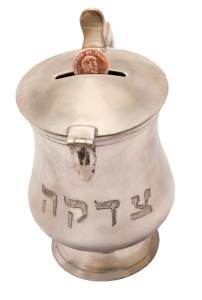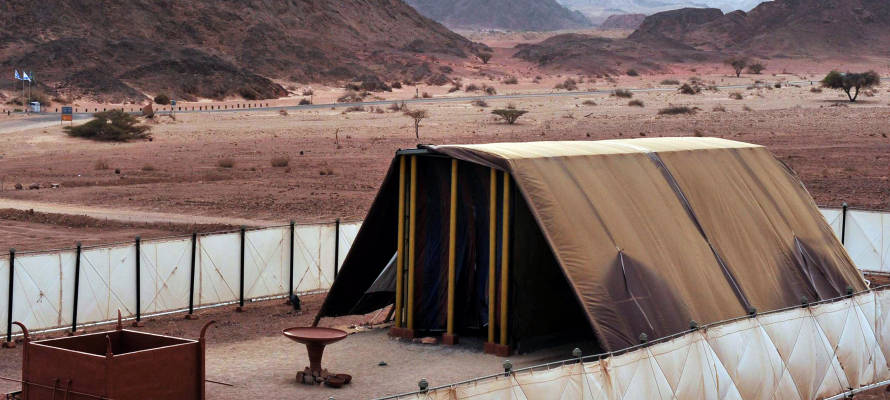In this week’s Torah portion, Teruma (Exodus 25:1-27:19), we learn about the movable sanctuary the Jewish nation constructed in the wilderness after leaving Egypt.

A traditional Jewish tzedaka container for giving charity. (Rhonda Roth/Shutterstock)
In Teruma, we read about the construction of the Mishkan (the Tabernacle), which was the portable synagogue that the Jewish people used in the desert and took with them everywhere they went. It was built primarily with voluntary donations of the necessary building materials.
In discussing the donation procedure, the Torah says, “[A]nd let them take for Me (v’yikchu li) an offering [for the construction of the Mishkan] from every man whose heart motivates him.” (Exodus 25:2) Many of the commentaries ask why the verse is written in this way. Why does it say let them take? The more appropriate language would be “v’yitnu” — let them give a donation. Donations are given not taken.
The answer sheds light on the Jewish view of charity. Most people believe that when they donate money (or anything else for that matter) to charity, the act says, “I am ‘giving’,” meaning that it is MY hard-earned money that I am giving.
Not so in Judaism. Judaism teaches that a person is supposed to believe that everything that he has is from God. We are merely guardians of the possessions that God chooses to give us. This includes wealth, children, our bodies, and just about everything else in life. As such, when we give money to charity, we are not donating OUR money, we are donating GOD’s money!
That should be our attitude in life — that everything belongs to God. We’re just the guardians. It is also worth remembering that we don’t take any of our material possessions with us to the Next World. We’ve got to make good use of them here.
On a related note, we are taught that when the Mishkan and later the Holy Temple stood, people gained atonement from God by means of the altar and offering sacrifices. In the absence of a Mishkan or Temple, and by extension an altar, we gain atonement from God by means of…our tables! Yes, your dining room table.
Huh? Our dining room tables provide atonement for us? Similar to the altar of the Temple? What’s going on here?

Rabbi Ari Enkin, Rabbinic Director, United with Israel
Indeed, it is explained that the mitzvot and acts of kindness that one performs around one’s table (feeding the poor, inviting guests, thanking God for one’s food after every meal, etc.) are the means to gain atonement for one’s sins and find favor with God. In fact, there was a custom in some ancient Jewish communities to be buried in a coffin that was constructed from one’s dining room table. This was done as an expression of “taking” one’s good deeds along with him to the Next World.
Similarly, there was a custom for Jewish tailors to be buried with their tape measures. In the past, tailors would cheat their customers by keeping for themselves the maximum amount of material that customers brought to them to make clothing. The honest tailors, however, used their tape measures for only honest and noble purposes, and thus asked that their tape measures be included in the coffin with them. Again, this was done as an expression that one was taking one’s good deeds into the Next World.
As these acts symbolize, the only things we take with us to the Next World are our good deeds. The money stays right here in the world. Be sure to use it well while you can. And remember, nothing is truly ours. Everything we have belongs to God who expects us to use what He has given us wisely.
By: Rabbi Ari Enkin, Rabbinic Director, United with Israel
To read more of Rabbi Enkin’s insights, click on the links below.
https://unitedwithisrael.org/judaism-demons-does-the-torah-address-the-occult/
https://unitedwithisrael.org/living-torah-the-youth-are-our-future/
https://unitedwithisrael.org/living-torah-we-all-need-our-ear-pierced-sometimes/
https://unitedwithisrael.org/living-torah-youve-just-gotta-listen/
